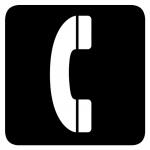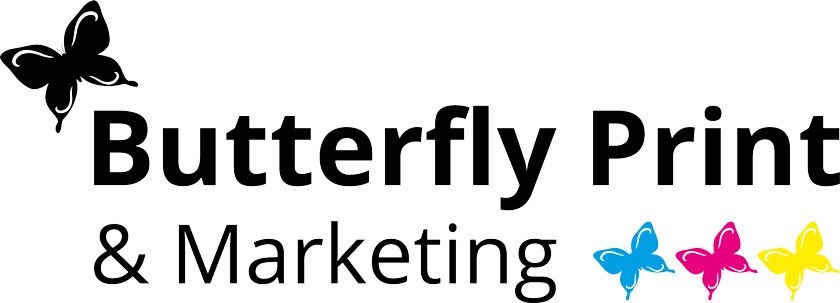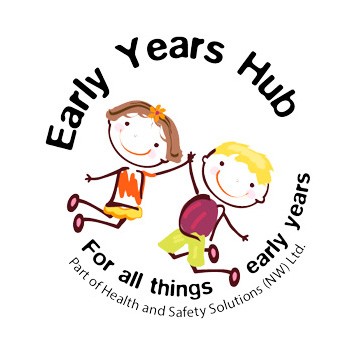In September 2019 a new framework will come into place and all early years provision registered with Ofsted will be required to meet its expectations. We have captured some specific themes and developments that will feature in the Education Inspection Framework providing a snap shot of what to expect when you are inspected from September 2019. We have used the Ofsted Early Years Inspection Handbook to reference this short blog: Early years inspection handbook for Ofsted registered provision, Handbook for inspecting early years provision registered by Ofsted in England under sections 49 and 50 of the Childcare Act 2006, Ofsted (May 2019)
The Early Years Inspection Handbook gives insight into a number of expectations that will be placed upon the provider before, during and after the inspection and explains how Ofsted will inspect early years provision. We advise a thorough scrutiny of the handbook which will best prepare settings for their inspection, however we have captured some of the details in the handbook and anticipated the questions most frequently asked by early years practitioners about inspection.
BEFORE THE INSPECTION
What happens before the inspection?
Ofsted inspectors plan and prepare for each inspection and will establish a number of things before they arrive for their visit. Inspectors will seek to find out the following information in order to form their lines of enquiry:
- details of the settings history
- which register the provider is on, confirming the registration details
- accuracy of information about individuals connected with the settings registration
- information held on Ofsted’s database
- details of any concerns known to Ofsted
- previous inspection reports
- published information by Ofsted about the setting
- progress made by the provider from actions or recommendations given at the previous inspection
- information from the providers website (if they have one)
- information on the internet in relation to safeguarding concerns
- other information held about the provider
What notice is given before an inspection?

Childminders or group providers that do not operate regularly, such as summer play schemes, will usually receive a call no more than five days before the inspection to check which days they are operating and whether there are children on roll and present.
Ofsted may also inspect without prior notification. This usually happens when inspections are prioritised because of concerns that have been expressed about the setting. Sometimes this is referred to as a ‘priority’ or ‘concern driven’ inspection.
The notification call is an important part of the process of inspection and an opportunity not only for the inspector to gain important information but also for the provider to ask any questions before the day when the inspector arrives.
The notification call will also give clarity to what the inspector will want to see on the day of inspection. An inspector may ask to see the following:
- a list of current staff and their qualifications, including in paediatric first aid
- a register/list showing the date of birth of all children on roll and routine staffing arrangements
- a list of children present at the setting during the inspection (if not shown on the register)
- any information about pre-planned interruptions to normal routines during the inspection, such as off-site visits
- the Disclosure and Barring Service (DBS) records and any other documents summarising the checks on, and the vetting and employment arrangements of, all staff working at the setting
- all logs that record accidents, exclusions, children taken off roll and incidents of poor behaviour
- all logs of incidents of discrimination, including racist incidents
- complaints log and/or evidence of any complaints and their resolutions
- safeguarding and child protection policies
- risk assessment, fire-safety arrangements and other policies relating to health and safety
- a list of any referrals made to the designated person for safeguarding, with brief details of the resolutions
- a list of all children who are an open case to social care/children’s services and for whom there is a multi-agency plan
- information about the supervision of staff (in group provision)
- information about training and/or career professional development of staff
- any reports of external evaluation of the setting.
DURING THE INSPECTION
What will happen during the inspection?
Here are some of the things to expect on the day! (for more comprehensive details you should refer the Handbook itself).
The inspector will always offer their source of identity and authenticity. Don’t be afraid to ask for this and make sure that you follow your own procedures that demonstrate your commitment to safeguarding and health and safety by getting them to sign in as a visitor to the setting. You might want to talk them through the settings health and safety procedures too, such as fire or emergency evacuation. This will reinforce your policies and help them to see good safe practice at the start of their visit.
You will be asked to display the notice that tells parents that your setting is being inspected at the start of the inspection. You will also be required to ask parents to speak to the inspector if they wish to about their views and thoughts on the setting, including how practice meets the individual needs of children.
Activity on the day will include:
- confirming the accuracy of, or any changes to, the information about the setting
- touring of the premises
- opportunities to discuss the settings evaluation of the quality of the provision
- making arrangements to talk to parents
- checking staff qualifications and recording them

- observing children at play
- talking to the children and practitioners about the activities provided
- talking to parents to gain their views on the quality of care and education provided
- observing the interactions between practitioners and children
- gauging children’s levels of understanding and their engagement in learning
- talking to practitioners about their assessment of what children know and can do and how they are building on it
- observing care routines and how they are used to support children’s personal development
- evaluating the practitioners’ knowledge of the statutory early years curriculum
Inspectors will evaluate policies and procedures and check to see that the these are compliant with legislation including the Early Years Foundation Stage (EYFS) and that demonstrate best practice in order to achieve desired outcomes for children.
The Education Inspection Handbook states that ‘Childcare providers are required to have written policies and procedures, as set out in the ‘Statutory framework for the early years foundation stage’. Childminders are not required to have these in writing, but they must make sure that they have effective policies and procedures in place and that any assistants are aware of these and can explain them to parents and others when requested.’
In group provision, the inspector must track the experiences and development levels of a representative sample of children. The inspector must track two or more children. The inspector will want to discuss children’s starting points with the provider. They will need to gather evidence to determine progress made. This evidence will include:
- the practitioner’s knowledge of each child
- the progress check for any children aged two
- the impact of any early years pupil premium funding on the children’s development
- the quality of support for any children with SEND
- the discussions held with each child’s key person and how they decide what to teach
- how well children are developing in the prime and specific areas of learning that help them to be ready for their next stage of education, including school
- the reason why children may not receive their full entitlement to early education and the impact that has on them, particularly those from disadvantaged backgrounds and those with SEND. If any of the children are eligible for the early years pupil premium or subject to a child protection plan or child in need plan, at least one of them must be included in the sample of those tracked.
Inspectors will use observation and discussion with staff to establish their views, findings and ultimately judgements on the quality of the provision. It is important to note that:
The handbook states that ‘Inspectors must spend most of the inspection time gathering first-hand evidence by observing the quality of the daily routines and activities of children and staff’.
‘Inspectors must discuss with leaders and practitioners what they intend children to learn, know and do as a result of the curriculum offer’. They must not ‘advocate a particular method of planning’. They will record how effective the setting teaches and how children are learning. The inspector will ‘use the evidence gathered from discussions and observations to help judge the overall quality of the curriculum provided for children’. The inspection should enable them to gather and collect evidence that supports ‘detailed and specific recommendations about improvements needed to the quality of education, personal development, behaviour and attitudes, and leadership and management’.
The inspector will invite the provider or a nominated senior member of staff to take part in one or more joint observations of activities, care routines and/or scrutiny of the progress children make. This will help to:
- gain an insight into the effectiveness of the provision’s professional development programme for practitioners
- check the provider’s view of staff’s interactions with children
- assess the quality of the implementation of the curriculum/educational programmes
- assess how effectively the manager supports staff to promote the learning and development of all children
How will the inspector feed back their findings of the inspection?
The Handbook makes it clear that ‘the inspector should hold brief discussions with the provider to discuss the findings that are emerging during the inspection and record all these meetings in the inspection evidence’. This enables the provider to see where the inspector has identified areas of strength or weakness and can provide them with an opportunity to respond with further or additional information or evidence offering clarity and verification of practice in the setting.
Before the inspector makes their final judgment they ‘should always check with the provider whether further evidence should be taken into account’.
What happens at the end of the inspection?
The inspector will set aside time towards the end of the inspection to ‘consider evidence and make final judgements’. Time will be set aside for final feedback in a meeting with the provider at the end of the inspection. Feedback will refer to the evidence that the inspector has gathered throughout the inspection. In line with the EIF inspectors will make judgements on the following areas:
- overall effectiveness
- the quality of education
- behaviour and attitudes
- personal development
- leadership and management
Inspectors will use a four-point scale to make these judgments and decide whether they are:
Grade 1 – Outstanding
Grade 2 – Good
Grade 2 – Requires improvement
Grade 4 – Inadequate
To achieve outstanding the provider has to meet ALL criteria for a ‘good quality of education securely and consistently’.
Inspectors will consider the INTENT, IMPLEMENTATION AND IMPACT of all that provision provides for children.
AFTER THE INSPECTION
What happens after the inspection?
The inspector must write the report immediately after the inspection. They will also update Ofsted’s database with information gathered during the inspection.
The provider will be sent the report before it is published to check for factual accuracy. They will usually give the provider 24 hours to establish and respond to this.
The report will be published by Ofsted.
**New features and developments in the Education Inspection Framework**
Safeguarding
Inspectors will consider how well children are helped and protected so that they are kept safe. The judgement for safeguarding will be written in the judgement made for leadership and management.

Ofsted have published a document that sets out approaches that inspectors should take when inspecting safeguarding elements of the inspection in EIF. ‘Inspecting safeguarding in early years, education and skills settings’ should be read alongside the framework.
Where the expectations in the ‘Inspecting safeguarding in the early years, education and skills settings’ differ from those set out in the EYFS, settings should follow the EYFS requirements.
The EYFS Curriculum
The ‘Quality of education’ refers to the EYFS curriculum, the educational programmes provided through the curriculum framework. This is what leaders have to build on ‘to decide what they intend children to learn and develop’. It is for leaders to decide how to implement the curriculum so that children make progress in the seven areas of learning. This will be done through evaluation of the impact of the curriculum by checking what children know and can do.
Inspectors will evaluate how well:
- Leaders assure themselves that the setting’s curriculum (educational programmes) intentions are met and it is sufficiently challenging for the children it serves
- Leaders use additional funding, including the early years pupil premium where applicable, and measure its impact on disadvantaged children’s outcomes.
- Practitioners ensure that the content, sequencing and progression in the areas of learning are secured and whether they demand enough of children
- Children develop, consolidate and deepen their knowledge, understanding and skills across the areas of learning
- The provider’s curriculum prepares children for their next stage.
Cultural Capital
A new phrase and focus in the Education Inspection Framework for early years inspection is what Ofsted refer to as cultural capital. The hand book refers to this by stating that:

Some children arrive at an early years settings with different experiences from others, in their learning and play. What a setting does, through its EYFS curriculum and interactions with practitioners, potentially makes all the difference for children. It is the role of the setting to help children experience the awe and wonder of the world in which they live, through the seven areas of learning’.
The inspection handbook states that ‘Cultural capital is the essential knowledge that children need to be educated citizens’.
Leaderships and management, responsibilities for staff’s wellbeing
An additional feature has emerged in the Education Inspection Framework that focusses on the extent by which leaders and manager support their staff teams. In order for the effective of leadership and management to be judged Outstanding (1) they have to meet the criteria demonstrating that ‘staff consistently report high levels of support for well-being issues’. For Good (2) ‘leaders engage with their staff and are aware of the main pressures on them. They are realistic and constructive in the way they manage staff including their workload’. Other factors judged to be Good meet the criteria that ‘Leaders protect staff from harassment, bullying and discrimination’.
We hope that you have found this brief summary of the EIF helpful. Do contact us for details of our training, consultancy and resources that we offer through the EARLY YEARS HUB.
Early Years Hub provides:
- Training on Safeguarding, including Designated Safeguarding Lead and Train the trainer courses for early years and schools.
- Safeguarding Hub, an on-line resource to help you and your teams stay connected to all things safeguarding and child protection.
- First Aid at Work and Paediatric First Aid training, including health and safety themed courses such as ‘Managing and administering medication’ courses.
- Mental First Aid at Work training courses.
- On-line training for a variety of themes relevant to the early years and education sector.
- Inspection audits conducted by consultants who are ex inspectors working with us in England and Scotland helping settings to determine their readiness for inspection and help them plan actions to make improvements and / or maintain progress.
- Due diligence activity that supports acquisitions of nurseries and early years provision for investors and potential purchasers.
- Consultancy on a variety of themes for settings to achieve compliance and develop best practice that results in excellent outcomes for children.
*The Early Years Hub half day Early Years Inspection under the Education Inspection Framework workshop on Saturday 7th September, 2019 takes place at their training centre in Bury, Greater Manchester.
The workshop will cover:
- An overview of the Education Inspection Framework
- The framework for early years provision
- How early years settings will be judged using the EIF evaluation schedule
- Focus on the curriculum and educational programmes
- What does ‘cultural capitol’ look like in the early years?
- How will EY’s reflect these changes through policy and practice
Cost £40 per person. Click here or email to book your place!
Facebook: Early Years Hub
Twitter: @earlyyearshub
[This summary was first published at earlyyearshub.co.uk]



Leave A Comment
You must be logged in to post a comment.